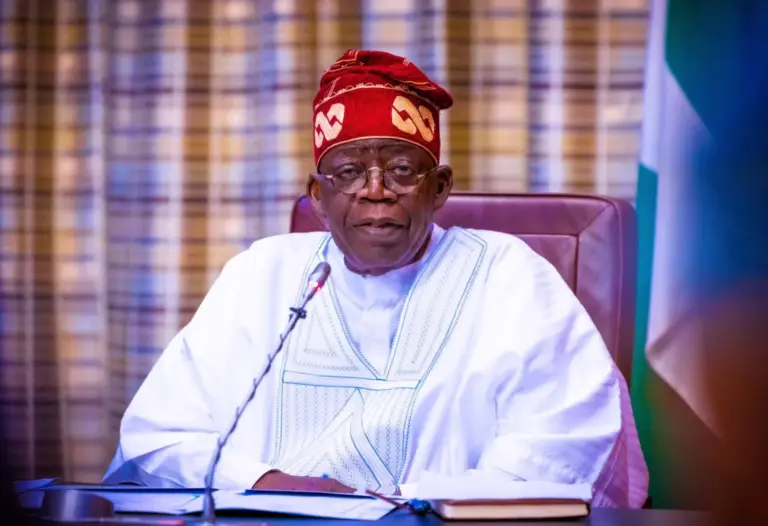President Bola Tinubu declared on Thursday that Nigeria was on the brink of bankruptcy before his administration swiftly removed the fuel subsidy and implemented crucial economic reforms.
Speaking at the State House in Abuja, while receiving a delegation of former National Assembly colleagues from the aborted Third Republic, Tinubu explained that his actions were necessary to secure the country’s future.
“For 50 years, Nigeria was spending the money of generations yet unborn while also subsidizing fuel for the West African sub-region. It was becoming increasingly difficult to plan for our children’s future,” he said.
His Special Adviser on Information and Strategy, Bayo Onanuga, detailed the discussion in a statement titled, ‘For 50 years, we were spending the money of generations yet unborn: President Tinubu.’
Economic Challenges and Reforms
Tinubu highlighted the dire economic situation he inherited, emphasizing that immediate action was required to prevent financial collapse.
“When I took over, we faced serious economic headwinds. Nigeria would have been bankrupt if we had not taken the necessary measures. We had to act decisively to stabilize the economy,” he stated.
He commended Nigerians for supporting the reforms, crediting their resilience for helping to stabilize the exchange rate and lower food prices, particularly during Ramadan.
“Today, we have laid a strong foundation. We have reversed the negative trends. The exchange rate is stabilizing, and food prices are coming down. There is light at the end of the tunnel,” he assured.
Commitment to Democracy and Development
The President reaffirmed that democracy remains the best path for Nigeria’s economic, social, and political progress. He praised those who continue to uphold democratic values, reflecting on his experiences in the Third Republic that shaped his leadership journey.
Support for Government Initiatives
Senator Emmanuel Nwaka, speaking on behalf of the delegation, commended Tinubu’s administration for initiatives such as the Nigerian Education Loan Fund and the Nigerian Consumer Credit Corporation (CREDICORP). He described these programs as transformative solutions to financial and educational challenges.
“I appreciate what you are doing for students. They represent the largest demographic in the country, and many have already benefited from these initiatives.
“CREDICORP is also a game-changer. It will help young graduates purchase cars and homes without relying on cash payments. This is a crucial step in fighting corruption and improving financial inclusion,” Nwaka noted.
Other members of the delegation included Sen. Bako Musa, Terwase Orbunde, Hon. Wasiu Logun, Amina Aliyu, Obi Anoliefo, and Eze Nwauwa.

